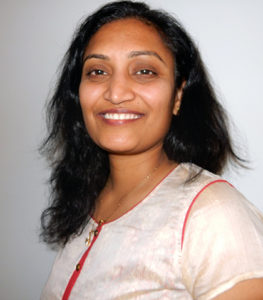Getting skilled migrants into work
Australia is missing out on much of the value skilled migrants bring because many struggle to find work fitting their qualifications and experience on arrival here, new research has found.
Many migrants feel there is little government support for them in the first year of their settlement; and, they feel they are not made aware of the challenges of finding work in Australia before their arrival, the study found.
 Titled ‘The Experience of Skilled Professional Migrants’ and compiled by migrant and refugee settlement agency AMES Australia, the study surveyed more than 150 skilled migrants on their experiences of coming to Australia.
Titled ‘The Experience of Skilled Professional Migrants’ and compiled by migrant and refugee settlement agency AMES Australia, the study surveyed more than 150 skilled migrants on their experiences of coming to Australia.
It found a perception among the group that there are too few orientation programs and little support in the first twelve months of settlement.
“Knowledge, orientation and available support comes primarily from word of mouth and personal social media networks,” the report said.
It found that among skilled migrants, there is both a lack of understanding of Australian workplace culture and job market standards; as well as limited knowledge about how to navigate a large uncoordinated system of information about finding employment.
But a majority of skilled migrants said the programs that do exist, such as the Skilled Professional Migrant Program (SPMP) run by AMES Australia, provided valuable support in finding work.
“87.30 per cent of survey participants believed that it would have helped them to find a job in Australia more suited to their skills and experience if they’d known earlier about the SPMP,” the study said.
The SPMP program aims to bridge the cultural divide faced by some migrants relaunching their careers in Australia. It introduces professional migrants to Australian workplace culture and job seeking techniques. Participants receive advice about professional interviews as well as insights into networking and resume writing.
A recent SPMP class saw 13 of the 15 graduates get professional jobs within three months.
And an earlier survey found that after completing SPMP, 89 per cent of students had found work and, of this group, 64 per cent were in professional jobs.
Before enrolling in the program, less than 35 per cent of participants had worked in Australia. Those who had worked were mostly in low skilled or non-professional work.
The current study found migrants believed the federal government should have a program to transition new migrants in order to give them local work experience; and also that advice should be more readily available on what to expect as a skilled migrant in Australia.
“Thinking back over their journey as skilled migrants, most thought that earlier preparation before they arrived in Australia would have reduced the stress of finding employment,” the report said.
The study found skilled migrants do use the services of migration agents (over 52 per cent) and find them helpful, particularly where they are time poor prior to migration as a result of having demanding jobs.
“While commercial fees charged by migration agents are seen by skilled migrants as a necessary cost of their migration, most thought that their investment might have been better directed at developing their Australian job market awareness and preparations,” the report said.
AMES Australia CEO Cath Scarth said it was clear there was a need for greater support for skilled migrants, and other newcomers to Australia, to gain employment commensurate with their skills and qualifications.
“Better and faster employment outcomes are not only in the interests of the individual migrant families because they speed up the settlement process and bring higher levels of wellbeing; they are also in the national interest because Australia will be better harnessing the skills and experience migrants bring with them as well as building social cohesion,” Ms Scarth said.
Skilled Migrant Sailaja Gudivada said that after completing the SPMP course, she was swamped with job offers.
A software engineer from India, Sailaja has been in Australia for nine years but had not properly resumed her career because of her two pregnancies.
“When it came time to get back into work, I struggled because I did not really understand the Australian job market,” Ms Gudivadfa said.
“But after completing the SPMP course, I felt more confident. The course was very helpful,” she said.
“I learned about writing cover letters and resumes in an Australian context and also about workplace culture in this country.
“Volunteering through the course gave me the local experience you need to get a job here and the mentor I was paired with has been very helpful and supportive.
“I am much more confident now and after the course I applied for four jobs and had two offers. I start my new job with a financial services company in September,” Ms Gudivada said.
Of the 15 people who completed Ms Gudivada’s SPMP course, 13 now have jobs in their professional fields.












